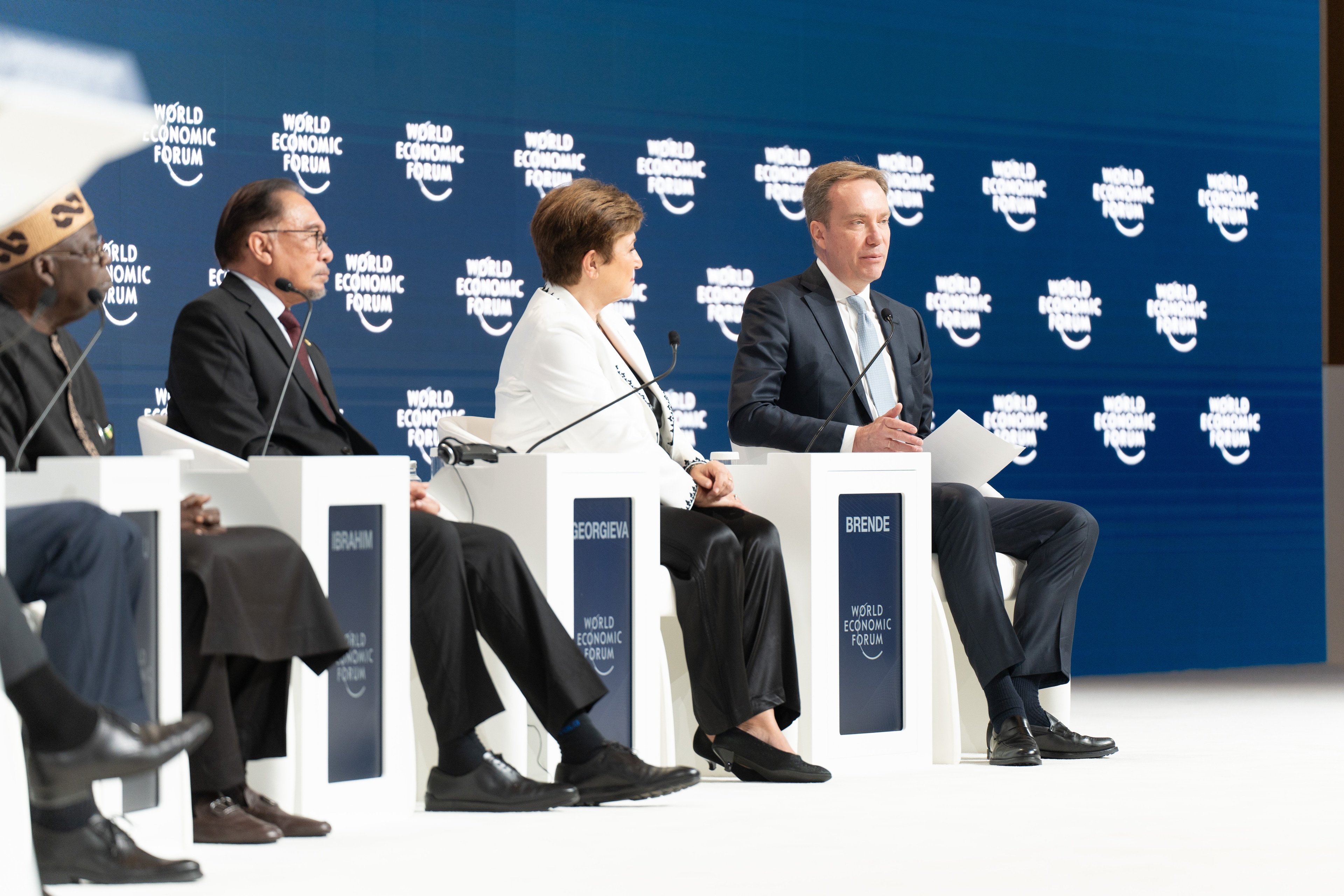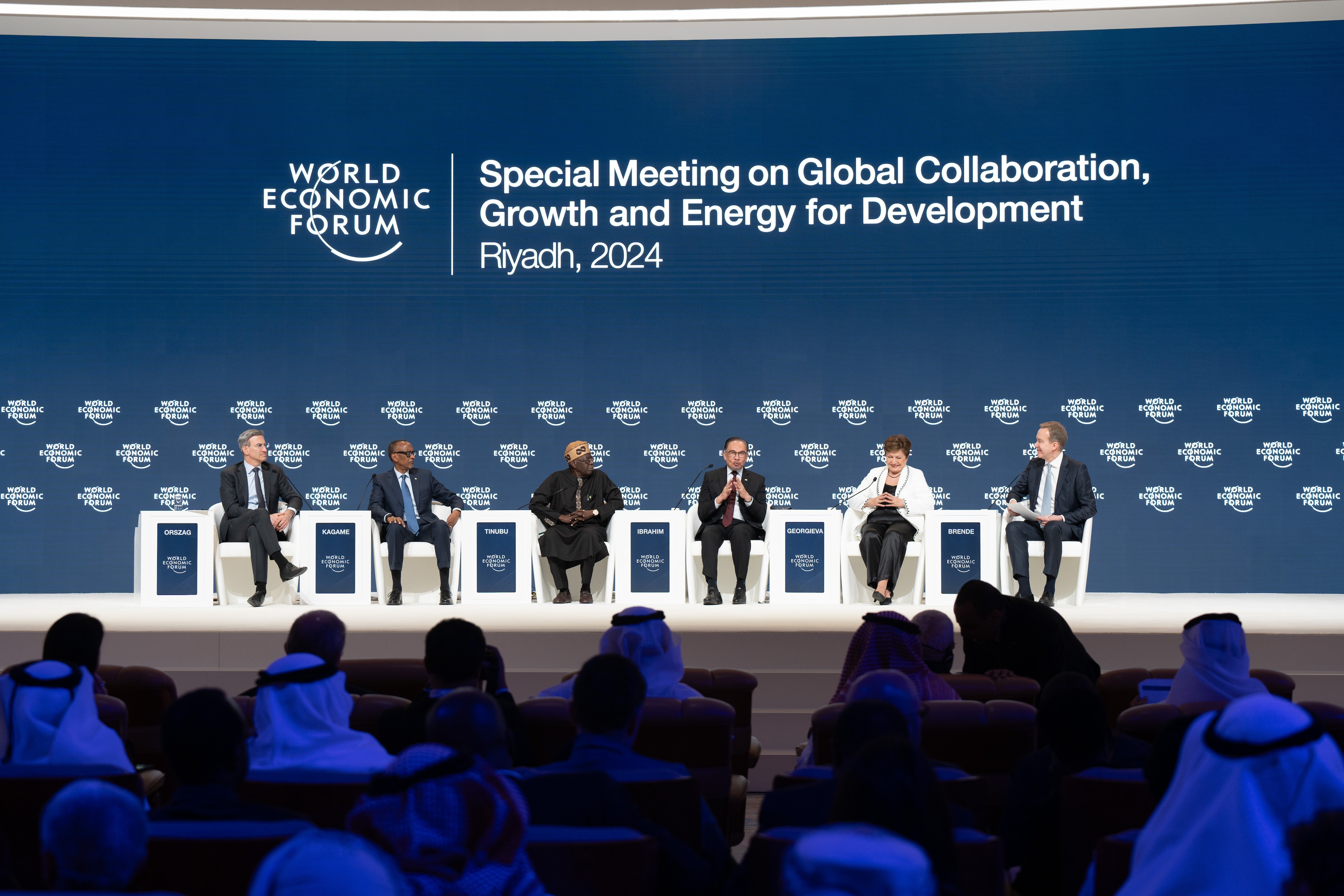How digital twins - and metavercities - could reshape urban development from Auckland to Hong Kong

Digital twin city projects in cities like Auckland, where wastewater and stormwater networks are monitored in real time, are revolutionizing urban development. Image: Unsplash.

Get involved with our crowdsourced digital platform to deliver impact at scale
Stay up to date:
Tech and Innovation
Listen to the article
- Digital twin cities are a powerful approach to urban planning and management.
- Metavercities are the next evolution of digital twin cities – creating an interconnected urban ecosystem.
- The development of metavercities requires the active participation of all stakeholders.
The digital twin city is a powerful approach to urban planning and management that has emerged in a time of rapidly increasing urbanization. A digital twin city is a virtual replica of a physical city that enables simulation, monitoring, and control of complex urban scenarios, enhancing efficiency and sustainability.
We are now on the brink of an even more transformative phase in urban development: the era of metavercities. Metavercities are the next evolution of digital twin cities, integrating physical, digital, and human systems to create an interconnected urban ecosystem.
This transition has the potential to bring benefits to economic growth, social inclusion, and innovation, but may also present new challenges. We need a deeper understanding of the digital twin city concept, development of relevant technology and governance structures to provide a clear path forward.
Best practice in the world of digital twins
Over the past year, the World Economic Forum, in partnership with the China Academy of Information and Communications Technology, brought together industry partners from a wide range of industries around the world to evaluate leading practices from dozens of digital twin cities around the world.
The three cities highlighted below have been selected as 2023 World Economic Forum Digital Twin City Pioneers. This distinction is a recognition of technical excellence and, most importantly, careful planning and collaboration among public and private sector partners to design and deliver solutions in response to pressing urban challenges.
Auckland, New Zealand
Safeswim is a digital twin of Auckland’s wastewater and stormwater networks that predicts water quality across the city’s 84 beaches in real time. Over 1 billion data points and analysis are collated from multiple organizations each day. Due to its success Safeswim has been extended to include 72 sites throughout New Zealand’s Northland Region and is Surf Life Saving’s chosen platform to share water safety information and warnings.

Hong Kong SAR
The Tung Chung New Town Extension (TCNTE) is the pilot project to develop a low-carbon community on Lantau Island. Innovative technologies such as Internet of Things (IoT), artificial intelligence (AI), satellite navigation, and smart security measures have been used in all aspects of reclamation works in Tung Chung East. The digital twin platform in the TCNTE has been so successful that the government extended its use to other developments, including Kwu Tung North and Fanling North. This technology is now standard practice. There are over 400 models in the platform, contributed by 14 construction contracts across 30 companies.

Ürümqi, China
At the IoT Port Platform of the China-Europe Railway Assembly Center, digital twin city technology and AI have been leveraged to improve efficiency and safety across visibility, monitoring, and management of this station. The technology allows visualization of the entire container management logistics process, creating greater planning opportunities. Introducing unmanned trucks and security patrol vehicles will greatly facilitate the station's replacement of manual labour with robots.

Metavercities: the next evolution of urban development
Metavercities are the next evolution of digital twin cities, integrating physical, digital, and human systems to create an interconnected urban ecosystem. In a metavercity data is not just collected and analyzed but also shared and acted upon in real-time.
Seamless integration of physical and virtual spaces can reshape and optimize urban planning, governance, and service delivery. The result is more efficient and convenient living spaces and ecologically sustainable urban environments.
A metavercity extends the concept of a digital twin city by creating a more immersive and interactive virtual representation of the city. While a digital twin city serves as the foundation, a metavercity is the direct and impactful application, bridging the gap between physical and virtual spaces. The presence of cities in the metaverse can help city leaders unlock new economic opportunities and extends city services via the digital space. Through virtual reality, residents can follow distance-learning classes as if they were actually in a classroom; they can travel without leaving their homes. Metavercities preserve a city’s branding, identity, and policies while allowing extended interactions and social inclusion.
How is the World Economic Forum supporting the development of cities and communities globally?
Navigating the challenges in transitioning to metavercities
Transitioning from a digital twin city to a metavercity is a complex process. Stakeholder buy-in and active participation are crucial to overcoming many significant challenges:
- Governments, businesses, and citizens need a deep understanding of the digital twin city concept. This involves everything from the details of creating a virtual replica of a city and simulating urban scenarios, to managing the data generated and creating strategic direction.
- Tech providers must invest in and develop metaverse-enabling technologies such as virtual reality, augmented reality, AI, haptics, and robotics. These are crucial for creating immersive digital spaces and diverse service delivery models. Additionally, metavercities need to be supported by unified dialogue interfaces, operating systems, and development environments.
- Governing bodies must face the challenges of data governance, delicately balancing the value of data against personal privacy. Governments should pay attention to data ownership and protection, establishing graded systems and supervisions with different levels of precision and confidentiality.
- Businesses can turn their attention to talent acquisition and development. Building a metavercity requires a workforce that provides not just technical skills but also has the ability to juggle the complex interplay between physical and virtual urban spaces.
- The main operation of digital twin city programmes is government-enterprise cooperation, where government invests and provides public infrastructure, and enterprise builds the virtual city. This requires viable regulatory frameworks and business models that encourage and facilitate such partnerships.
- Citizens, as primary users, need to be involved in all stages of the process to ensure metavercities meet their needs and improve their quality of life. Citizens should be encouraged to participate in the construction and operation of their city, and to promote inclusive and impactful projects.
Stepping into our immersive digital future
Metavercities, with their immersive digital spaces, diverse modes of service delivery, and vibrant engines of growth, hold immense potential for economic growth, tourism, education, social inclusion, and innovation. However, the path to metavercities is not without its challenges.
The development of metavercities requires the active participation of all stakeholders, including governments, businesses, tech providers, and citizens. Strategic direction, regulatory policies, infrastructure, and enabling technologies must be developed and implemented.
By fostering public-private partnerships, encouraging innovation, and ensuring inclusivity, we can pave the way for a more sustainable, resilient, and inclusive urban futures. The road may be rough, but the destination makes it a journey worth embarking on.
Don't miss any update on this topic
Create a free account and access your personalized content collection with our latest publications and analyses.
License and Republishing
World Economic Forum articles may be republished in accordance with the Creative Commons Attribution-NonCommercial-NoDerivatives 4.0 International Public License, and in accordance with our Terms of Use.
The views expressed in this article are those of the author alone and not the World Economic Forum.
Related topics:
The Agenda Weekly
A weekly update of the most important issues driving the global agenda
You can unsubscribe at any time using the link in our emails. For more details, review our privacy policy.
More on Forum InstitutionalSee all
Gayle Markovitz
April 28, 2024
Gayle Markovitz
April 27, 2024
Mirek Dušek and Maroun Kairouz
April 27, 2024
Kate Whiting
April 26, 2024
Spencer Feingold and Gayle Markovitz
April 19, 2024
Kate Whiting
April 17, 2024






